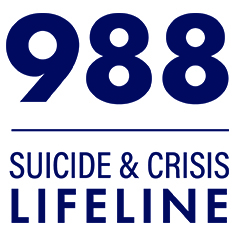The Injury Control Research Center for Suicide Prevention (ICRC-S), a CDC-funded research center focusing on a public health approach to suicide prevention and research, began its third annual webinar series on January 20, 2015. A project of the University of Rochester Medical Center and Education Development Center, the ICRC-S draws suicide prevention directly into the domain of public health and injury prevention and links it to complementary approaches to mental health.
The settings which will be addressed in this year’s ICRC-S webinar series, Exploring the Impact of Suicide Prevention Research in Multiple Settings, will include:
- Health Care
- Schools
- Faith-Based Organizations
- The Justice System
- The Workplace
- Social Media
Each monthly webinar will be one hour and will provide an opportunity for dialogue with the webinar presenters.
The first webinar in the Injury Control Research Center for Suicide Prevention’s (ICRC-S) 2015 webinar series took place on Tuesday, January 20th from 2:00 p.m. – 3:00 p.m. Eastern Time. The speakers for this webinar were Eric Caine, M.D., ICRC-S Director and Chair, Department of Psychiatry, University of Rochester, and Jane Pearson, Ph.D., Chair, Suicide Research Consortium, National Institute of Mental Health. Dr. Caine and Dr. Pearson launched this series with an overview of the impact of research on national goals for suicide prevention. They discussed the efforts of the National Action Alliance for Suicide Prevention, the 2014 work of the Research Prioritization Task Force, and the links between research and practice. Jerry Reed, Ph.D., M.S.W., ICRC-S Co-Director and Director of the Suicide Prevention Resource Center, moderated.
Archived Webinar
Event Presenter(s)
About Our Presenters
Eric Caine, M.D.
Eric Caine, M.D. has served since 1996 as John Romano Professor and Chair, URMC Department of Psychiatry, and Co-Director of the Center for the Study and Prevention of Suicide (CSPS) since its founding in 1998. He has deep experience in the evaluation, management, and aftercare of acutely suicidal individuals, dating to the 1970s. In the past, he worked as a year-round inpatient hospitalist for nearly a decade and as an outpatient psychiatrist for more than two decades. He participated in >100 psychological autopsies as part of a team that worked with the Office of the Medical Examiner, Monroe County, NY. Dr. Caine has had continuous NIH funding since 1983. For nearly two decades, he has focused on public health approaches to suicide prevention and has led these efforts through CSPS. He was PI of a NIH-supported collaborative consensus process on public health approaches to prevention, funded from 2001-05 by a coalition of NIMH, NIAAA, NIDA, NINR, NICHD, SAMSHA, and CDC, and a NIMH Research Education Grant (R25) from 2005-10 that supported the training and development of multiple graduate and post-graduate suicide researchers, as well as community partnership teams. From 2004-2010, Dr. Caine led the NIMH/NIDA funded Center for Public Health and Population Interventions for Preventing Suicide, which spawned a wide variety of ongoing grants, and he now directs the CDC-funded Injury Control Research Center for Suicide Prevention (ICRC-S), the only such center in the United States devoted to suicide prevention. Its mission is to merge injury prevention and mental health perspectives to forge new public health, community oriented approaches to preventing suicide, attempted suicide, and their antecedent risks.
Jane Pearson, Ph.D.
Jane Pearson, Ph.D., chairs the National Institute of Mental Health’s (NIMH) Suicide Research Consortium. She is the Associate Director for Preventive Interventions in the Division of Services and Intervention Research, and she is currently leading the staffing for the National Action Alliance for Suicide Prevention Research Prioritization Task Force. Dr. Pearson serves as the National Institutes of Health representative to the DHHS Federal Steering Group on Suicide Prevention. She assisted in the development of the Surgeon General’s Call to Action to Prevent Suicide and the first National Strategy for Suicide Prevention. She served as a member of the Veterans Administration Blue Ribbon Workgroup on Suicide Prevention. Dr. Pearson is an adjunct associate professor at Johns Hopkins University, a Fellow of the American Psychological Association, a recipient of a U.S. Health and Human Services Secretary’s Award, the American Association of Suicidology Marsha Linehan Award for Treatment Research, and a Public Service award from the American Foundation for Suicide Prevention. She has had a private practice in clinical psychology, and has authored papers on the ethical and methodological challenges of suicide research.
Moderator:
Jerry Reed, Ph.D., M.S.W.
Jerry Reed, Ph.D., M.S.W., began serving as the Director of the Suicide Prevention Resource Center in July 2008. Through this work, he provides state and local officials, grantees, policymakers, interested stakeholders and the general public with assistance in developing, implementing and evaluating programs and strategies to prevent suicide. As a member of the Executive Committee of the Action Alliance for Suicide Prevention, Dr. Reed co-led the task force with the Surgeon General that updated the U.S. National Strategy for Suicide Prevention in 2012. Additionally, Dr. Reed serves as the Director of the Center for the Study and Prevention of Injury, Violence and Suicide overseeing multiple projects and also serves as Co-Director of the Injury Control Research Center for Suicide Prevention with partners at the University of Rochester Medical Center. His interests include geriatrics, mental health, suicide prevention, global violence prevention and public policy. Dr. Reed received a Ph.D. in Health Related Sciences with an emphasis in Gerontology from the Virginia Commonwealth University in Richmond in 2007. His research topic addressed variation among states in crude rates of older adult male suicide.
